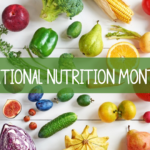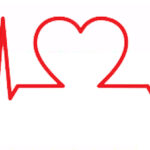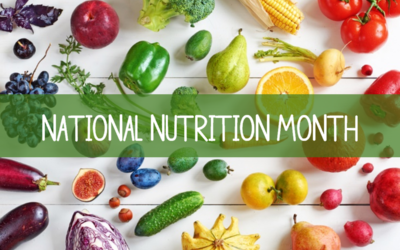Because of her own family history regarding heart health, it is a very important topic to our CEO, Michelle. This February we want more women to take notice of their cardiovascular systems and how they can best care for their hearts. Over the years, through significant efforts by the American Heart Association and the medical and wellness community at large, women now see heart disease as something that affects women nearly as often as men. In fact, 60 million women are currently living with some form of heart disease and it is the number one killer of women in this country, higher than all cancers combined! Another startling statistic is that 64% of women who die suddenly of heart disease have no previous symptoms. As employers, it is important we educate our employees, both women and men, about heart health.
Here are some simple concepts that can help us protect our cardiovascular system:
RISK FACTORS: We all have uncontrollable (age, race, gender, family history, genetics) and controllable (nutrition, smoking/vaping, exercise, stress, sleep) risk factors. The general rule is that we want to do as many helpful activities for our hearts as possible to decrease our overall risk. You can take a risk assessment here.
SCREENINGS: It is a good idea for EVERYONE to get annual testing of blood pressure, resting heart rate, cholesterol, blood glucose and speak with their medical provider to assess risks factors. Additionally if a person has a medium to high risk level, it is probably a good idea to make an appointment with a cardiologist if they are over the age of 40-45.
TAKE A LOOK AT THE 3 S’s:
- SLEEP- We talk about sleep often because we believe that without GOOD, SOLID sleep everything else is HARDER! When we sleep we allow our bodies to prepare the energy needed for the following day, clean up any damage to our cells, make short-term memories into long-term memories, buff up our immune system and so much more. In addition, research shows that adults who sleep less than 7 hours each night are more likely to say they have had heart health problems, including heart attacks and other issues that raise the risk for heart disease, heart attack, and stroke. (www.cdc.gov) When we get enough sleep we are better able to manage our stress and emotions and we have the energy to make healthier choices throughout the day.
- STRESS- Our second favorite topic is stress because we all live with far too much of it. Most of us have accepted that this is how life is- chronically stressed, rushing around from here to there, scarfing down our meals, and moving onto the next task, but it doesn’t have to be. We can look at what changes we can make reduce the amount of stress we experience. We can also practice being intentional with our reactions to stress. We know that stress can increase blood pressure in the moment AND overtime, it also creates systemic inflammation. This means that our cardiovascular system can be at a higher risk for heart attacks, strokes, blood clots and more. Take a closer look at how you can find time for yourself and practice better time management to feel more in control of your day-to-day.
- SMOKING- Nicotine is the second most addictive legal substance on the planet (preceded by sugar) making it extremely difficult to remove from one’s life. The research is clear that smoking increases your risks of heart disease two-fold over other risk factors. Additionally, while the research is still new, we are seeing that with vaping there seems to be a risk of developing higher levels of cholesterol deposits in the cardiovascular system after just one year of vaping. If you need help to quit, visit AHEC or ask your employer about our Kick BUTT program which uses the step-down approach to reducing nicotine dependence.
- NUTRITION – TAKE CONTROL OVER NUTRITION. There’s a lot to unpack here, no doubt. We think it makes things easier when you break it down into smaller parts. Nutrition is a complex science and although it isn’t regarded that way, it is important to recognize that nutrition is CHEMISTRY at the end of the day. College-level nutrition is no joke!
Here is our RIB model:
Reduce These- looking out for the following items and to stay within recommended limitations. There are various approaches to looking at limitations depending on dietary needs, but for the average population (whatever that is when speaking about health 😂)
- Sodium – maintaining no more than 1800 mg per day is the recommended limitation. Keep in mind food labels use 2,000 mg as 100% and in most restaurants you are getting more than 100% for any meal that you eat. Here is a list of restaurants and the amount of sodium in some of their options. Looking for some quick tips to reduce sodium? Watch this 1-minute video.
- Sugar- Many of you may wonder, how sugar is related to heart health. The research is showing that excessive sugar not only causes inflammation, but it is also stored as fatty acids in the liver which is leading to more diagnosis’ of fatty liver disease. It is probably best to reduce added sugars (those that do not come with fiber as part of their natural state) to less than 25 grams per day. Sugar is addictive so it makes it hard to reduce.
- Saturated Fats- These tend to come in the form of fried foods, meats, processed foods, cheeses, prepared foods, baked goods, and restaurant foods. These are solid at room temperature. We try to help illustrate what too many saturated fats does to the body by asking our participants to think of their cardiovascular system like a set of pipes. If we poor grease down the drain to often, the drain gets clogged making it harder for water to pass through. Same for the CV system- excessive saturated fats build up as cholesterol deposits in our vascular system and overtime that increases our risks for a variety of heart conditions. It is recommended that we get as little of these as possible with the limit being around 12 grams per day.
- Cholesterol- Cholesterol level is related to family history and genetics, but eating a diet high in saturated fats and animal meats can increase those risk factors. The total number changes with the wind, but most health professional agree that getting blood work done annually is ideal and eating less than 200mg-300mg from animal fats per day.
Increase These– Each of the items listed helps our body decrease inflammation while also giving our cells what they need to perform best. Most Americans are at least in part vitamin deficient and therefore not only are we eating a diet that tends to be high in the items above but it is also low in the things it needs. It’s a double WHAMMY. Eating colorful foods in their natural form with every meal/snack will lead to better support for our vascular system.
- Fiber
- Antioxidants
- Fruits
- Vegetables
Balance These– Each of these items provides some of the above in compact easy to eat ways. Focusing on a balance of them will provide the most effectiveness. Too many nuts or empty grains (white rice, pasta, noodles, etc.) can raise glucose levels and cause weight gain. Ideally we are cooking or eating food from our home for as many meals as possible. We get it! This means time management and extra work, but when we take the time to do it, we will feel so much better.
- Nuts/Grains
- Seeds
- Empty Calories
- Prepared Foods
- Restaurant Eating
Movement: Most of us could benefit from INCREASING OUR AMOUNT OF MOVEMENT! Human beings were made to move and unfortunately our environments don’t encourage it throughout the day. There are some ways to fit it in but it requires motivation (this comes with more sleep and less stress) support, and commitment. We know this is HARD, but when you get overwhelmed think about yourself in 25 years and decide if you will be able to move how you want, if you continue to move the amount you currently do. Think about the basics:
What do you like to do? Or what will you hate the least?
- Plan for 15 minutes+ before work
- Every hour move around the office/home during the workday and consider doing 2 sets of 10 reps of something (here are a few leg ones) CAN YOU LINK THE EXERCISE SHEET?
- At lunch try to sneak in a 20-minute walk or movement something- 3 days a week (no pressure)
- Plan for 15 minutes + of stretching/flexibility/core while watching TV- 5 nights a week
- Schedule a workout of 30 minutes + 3 or more days per week
PRACTICE SELF-CARE: Ultimately this is the priority! We all need to be kinder to ourselves and give ourselves the time to practice self-care. Self-care is not SELFISH. We deserve to take the time to do activities that has the potential and likelihood to make us feel better. These things include everything that is listed above as well as hobbies, sports, social activities, familial time, time in nature, self-reflection, education, and more.
We hope you take the time this month to do something for your heart health, even if it is forwarding this information to someone who might need to hear it.









